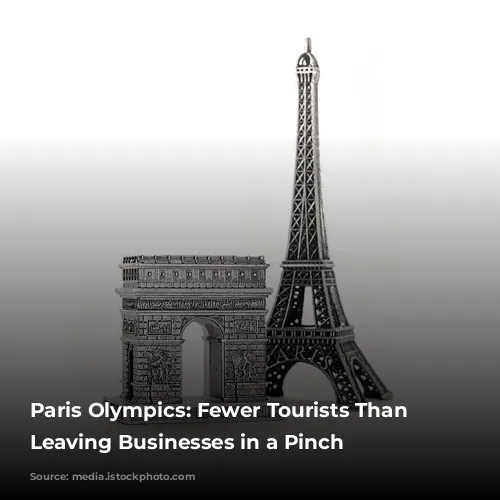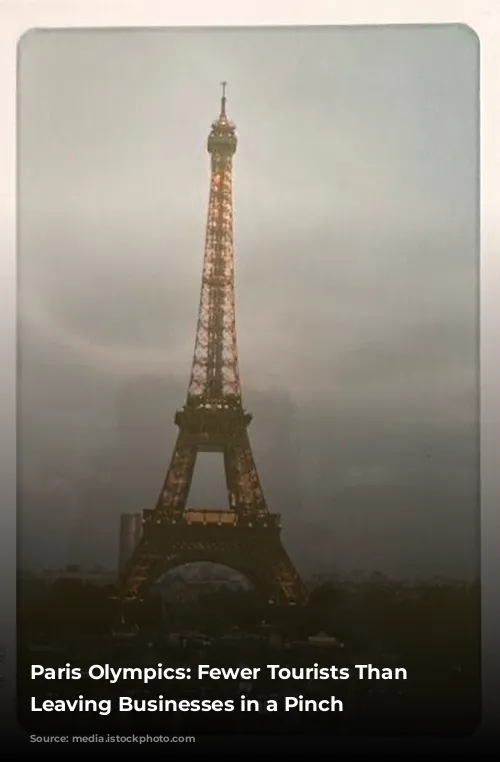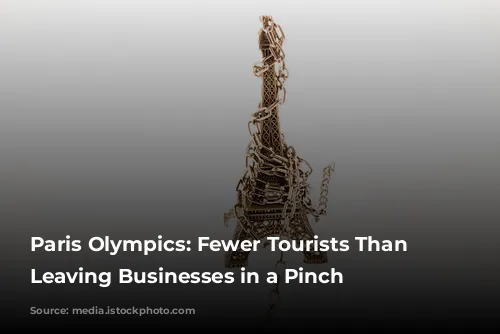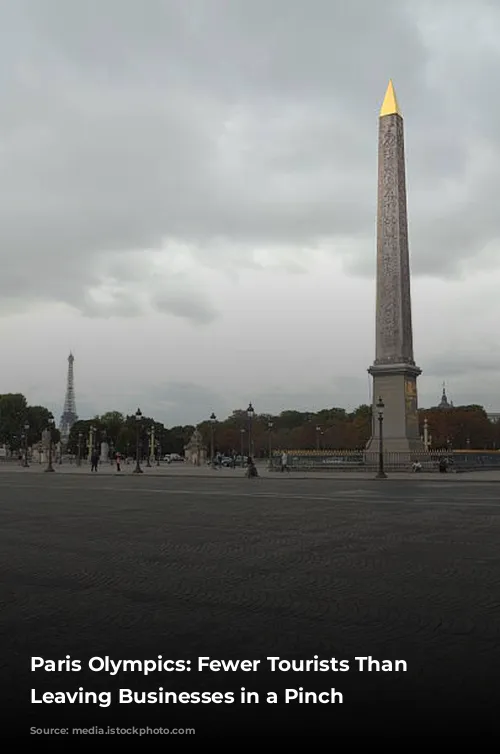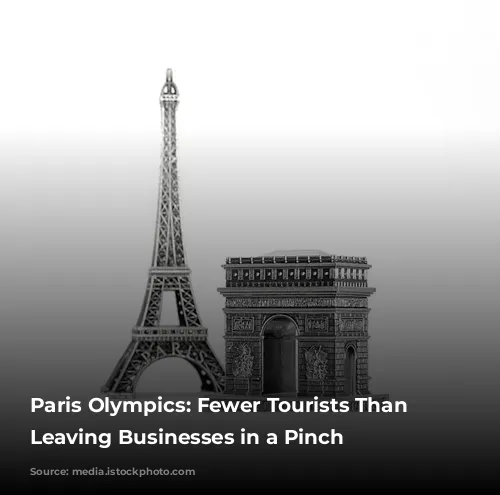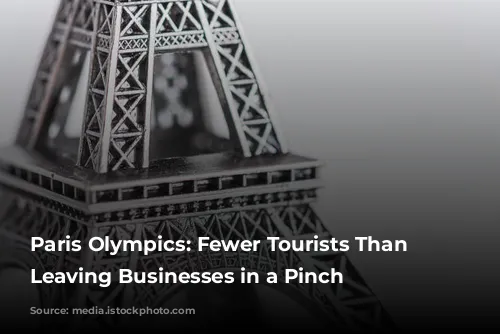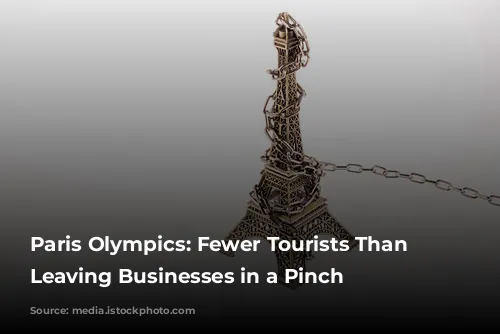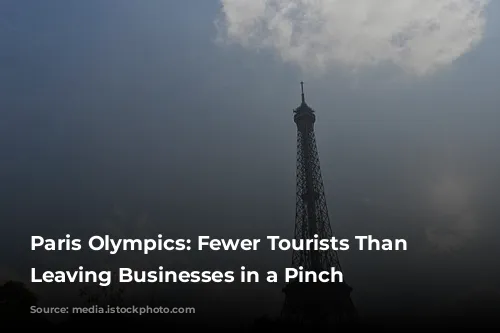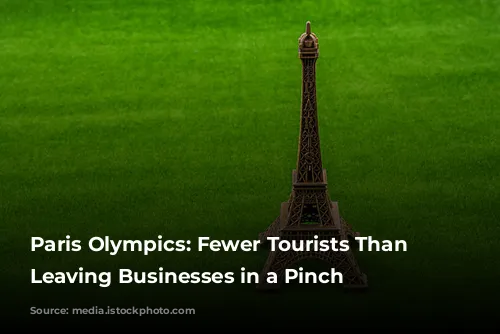Paris is gearing up for the Olympic Games, but the city might not see the influx of tourists initially anticipated. While 11.3 million visitors are expected during the Games, a mere 1.5 million will be international travelers, according to the city’s tourism board. This shortfall is leaving many businesses feeling disappointed.
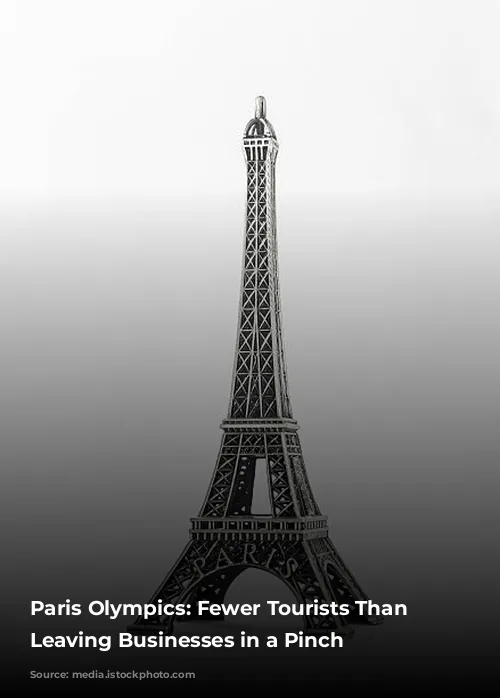
A Tale of Two Cities: High Hopes, Dwindling Demand
The excitement of the Olympics hasn’t translated into the expected boom in tourism. Businesses that typically thrive during major sporting events are grappling with disappointing sales and struggling to fill hotel rooms and airline seats.
Sports travel specialist Alan Bachand expected a surge in demand but has witnessed a stark decline in sales. His business, which relies on pre-booking hotel rooms and tickets for events like the Super Bowl and FIFA World Cup, has seen sales plummet by 80% compared to past Olympics. The reason? Sky-high prices.
Bachand explains that the cost of hotel rooms skyrocketed, forcing him to hike prices for customers. However, when demand failed to materialize, he and other businesses were forced to slash prices to attract last-minute travelers. The result? A significant loss in potential revenue.
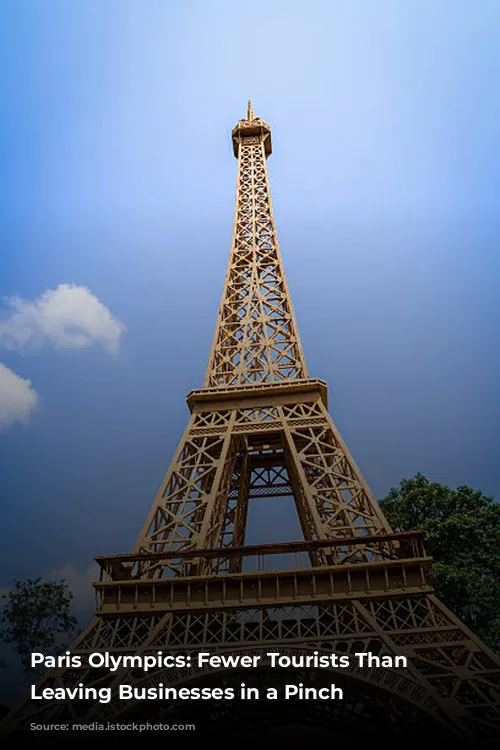
Airlines Face Similar Headwinds
Airlines, too, are feeling the pinch. Delta Air Lines Inc. expects a $100 million loss due to fewer travelers opting to visit France during the Olympics. Air France, which expanded its flight capacity from US cities to Paris by 15%, has reported revenue losses of at least €180 million ($195.5 million) in July and August, attributing the decline to the Games. To fill empty seats, both airlines are offering steep discounts, especially for travelers using reward points.
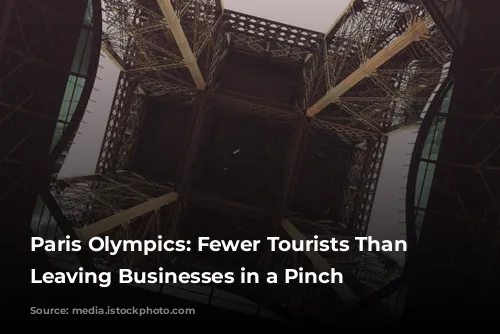
Travel Trends: A Shift in Behavior
The lack of international tourists is evident in travel trends. International flights to Rio de Janeiro during the 2016 Olympics soared by 115% year-over-year, while Paris has seen only an 8% increase. This discrepancy suggests a shift in traveler behavior.
While many people are still interested in visiting Paris, they are hesitant to pay inflated prices. Bachand believes that many travelers are waiting to see how geopolitical events and the French election unfold before making a decision, citing concerns about safety.
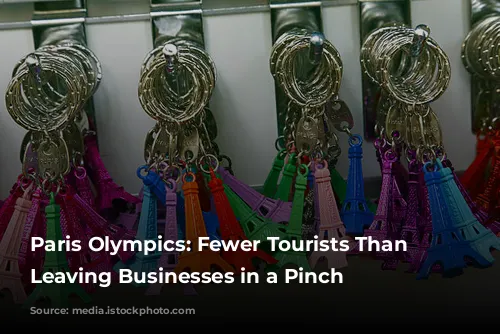
Hotels Scramble to Attract Last-Minute Guests
The scramble to fill empty rooms is evident throughout Paris’ hotel industry. Hotels are lowering nightly rates, removing minimum stay requirements, and offering discounts to entice last-minute travelers.
But the last-minute rush is unlikely to fill the gap. With most tickets for popular events like track-and-field and swimming already sold, a sudden influx of tourists is unlikely. Additionally, families and friends of athletes who secured Olympic berths have already made travel plans.
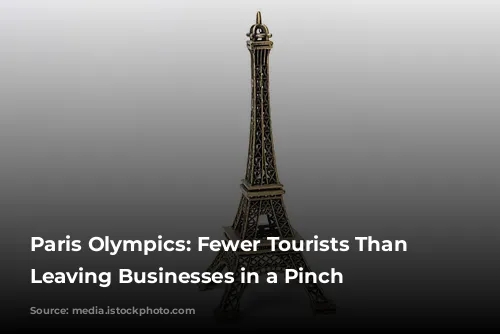
A Mixed Bag for the City of Lights
While some businesses are struggling to make ends meet, others are thriving. Generator, which offers a mix of hostel and traditional hotel rooms, is seeing strong demand, especially for its more affordable options.
Despite the challenges, Bachand remains optimistic. He believes he can still salvage some of the lost revenue by selling just 100 more hotel rooms. But the reality is that the Paris Olympics might not be the lucrative event many businesses anticipated.
